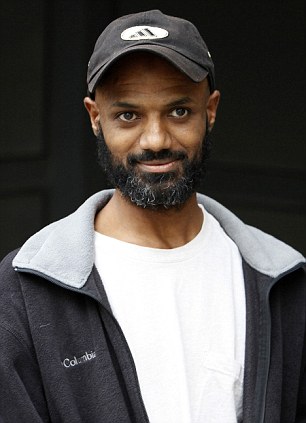Considering the fact that the New York Times is in its Middle East outlook a predictably liberal Zionist newspaper, it’s often refreshing to see what kind of surprises occasionally pop up on the op-ed page.
I dare say quite a few of the paper’s readers had heart palpitations on Monday morning after stumbling upon Adam B. Lowther’s piece on why a nuclear-armed Iran would be good for the United States.
“Believe it or not, there are some potential benefits to the United States should Iran build a bomb,” Lowther writes, while underlining that he is speaking for himself and not the US Air Force Research Institute where he works as a defense analyst.
None of Lowther’s arguments is particularly persuasive. He pictures the US providing the region with a nuclear umbrella and then being able to apply leverage on the major oil producing countries to bring about everything the US might wish for — lower oil prices; “economic, political and social reforms in the autocratic Arab regimes responsible for breeding the discontent that led to the attacks of Sept. 11, 2001”; a much needed shot in the arm for the American defense industry — even a resolution to the Israeli-Palestinian conflict.
That’s a big payoff from Iran becoming a nuclear power!
Lowther’s thinking seems to be at its fuzziest here:
Israel has made clear that it feels threatened by Iran’s nuclear program. The Palestinians also have a reason for concern, because a nuclear strike against Israel would devastate them as well. This shared danger might serve as a catalyst for reconciliation between the two parties, leading to the peace agreement that has eluded the last five presidents. Paradoxically, any final agreement between Israelis and Palestinians would go a long way to undercutting Tehran’s animosity toward Israel, and would ease longstanding tensions in the region.
Pointing out that the Palestinian population in the West Bank and Gaza would be at as great a risk from nuclear fallout as would Israel’s own population in the event of an Iranian nuclear strike is actually one of the most compelling reasons why an Iranian nuclear arsenal could only serve the Islamic Republic as a nuclear deterrent.
As cynical as the use of the Palestinian issue by Iran’s leaders might be, it’s really hard to see how killing tens of thousands of Palestinians would serve Iran’s strategic needs. In other words, in the event that Iran becomes a nuclear power, Israel should probably start viewing its Palestinian neighbors as part of its own insurance policy (along side its own large nuclear arsenal).
Of course, proponents of the mad mullah theory argue that the Iranian regime is driven by its own death wish, in which case the Palestinians would be out of luck. (Mind you, the equally mad bomb-Iran crowd seems to be subject to its own variety of death wish — war with Iran would surely push a teetering global economy over the edge.)
So, to return to Lowther’s original assertion — that a nuclear Iran would benefit the United States — I’m inclined to agree, but for utterly different reasons.
Ayatollah Ali Khamenei said on Monday: “The Iranian nation, with its unity and God’s grace, will punch the arrogance (Western powers) on the 22nd of Bahman (February 11) in a way that will leave them stunned.”
Is Iran about to conduct a nuclear test?
I, like just about everyone else, would indeed be stunned if that happened, but let’s suppose it does — and even if it doesn’t happen on Thursday, let’s just picture it some day down the road in the coming months.
What then?
Well, at that point I would expect an invective-filled global shrug. There would be a few days of hyperventilation as international leaders tried to outdo each other in expressing their shock and outrage, and then…
And then we’d be able to get on with the rest of our lives. We would — just as former CENTCOM commander John Abizaid predicted almost three years ago — “learn to live with a nuclear Iran.” Indeed, we might at that point be willing to admit what is already true: that the nuclear weapons that should cause the greatest global concern are further east, in Pakistan.


 The story of Binyam Mohamed is probably one of the most under-reported stories of the war on terrorism — it has still only partially been told. If, as the former Guantanamo prisoner alleges, he had his genitals sliced with a scalpel after being captured by the US, then the defenders of so-called “harsh interrogation techniques” should finally be rendered mute and duly shamed.
The story of Binyam Mohamed is probably one of the most under-reported stories of the war on terrorism — it has still only partially been told. If, as the former Guantanamo prisoner alleges, he had his genitals sliced with a scalpel after being captured by the US, then the defenders of so-called “harsh interrogation techniques” should finally be rendered mute and duly shamed. President Barack Obama said he doesn’t “begrudge” the $17 million bonus awarded to JPMorgan Chase & Co. Chief Executive Officer Jamie Dimon or the $9 million issued to Goldman Sachs Group Inc. CEO Lloyd Blankfein, noting that some athletes take home more pay.
President Barack Obama said he doesn’t “begrudge” the $17 million bonus awarded to JPMorgan Chase & Co. Chief Executive Officer Jamie Dimon or the $9 million issued to Goldman Sachs Group Inc. CEO Lloyd Blankfein, noting that some athletes take home more pay.